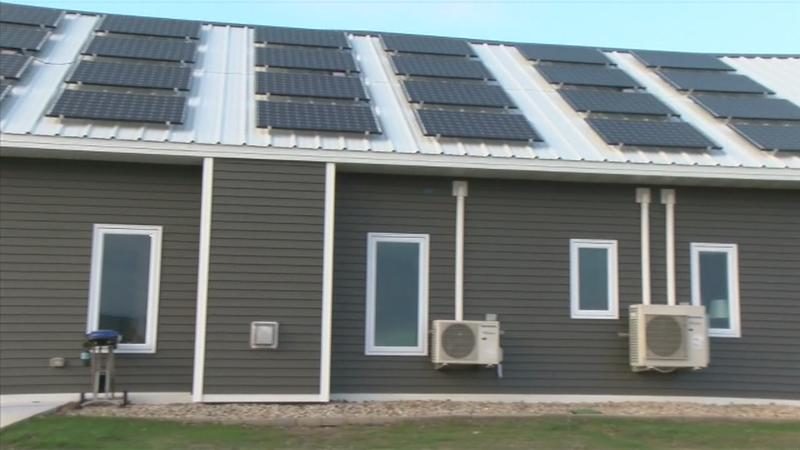More than a decade ago, Bacon built the first “net-zero energy” home on a 10-acre parcel that once housed his family’s alpaca farm. Since then, he said technology has come a long way and made solar energy more affordable.
“When we built the first home in 2004, it became pretty apparent that it’s pretty easy to build a zero-energy home,” he said.
Since then, he built another home across a gravel driveway from the first. Another eight could come in the future.
The concept is “interesting” and “innovative,” said city council member Bennett Smith, but he doesn’t foresee solar panels springing up everywhere just yet.
“We’ll have to wait and see as to whether it would take off,” he said. “It’s in its very early stages, it is again kind of an interesting concept. Right now we don’t see a lot of demand, but I think you could see this take off in the long run.”
Bacon said he’s gotten a fair bit of interest in the proposal so far, in part due to the nearly non-existent energy bills. Another factor, he said, is cost: even with a solar panel system costing more than $10,000 after tax incentives, the four-bedroom, three-bathroom home he lives in cost less than $200,000 to build.
“I think it was one of my daughters (that said) ‘Dad, you know it’s kind of like the Field of Dreams; you build it and they will come,'” he said.
If the plan receives the necessary approvals, construction on some of the new homes could begin in the spring.
